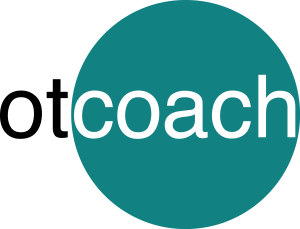I have been an occupational therapist since 1998, initially following a traditional path in the NHS. However, I did not take the conventional rotational post, opting instead for a role in adult mental health that bridged community and acute settings. Over the years, I worked across various NHS environments, including day services, older people’s mental health, community hospitals, and intermediate care. Despite my commitment, I became disenchanted with the system early on in my career and transitioned into academia, securing a lecturer position at Bangor University’s Postgraduate Diploma/MSc in OT programme—a role I planned to stay in for about five years but ultimately spanned a decade!
Alongside my professional journey, I embarked on a deeply personal exploration of healing. Following multiple recurrences of thyroid cancer, I sought alternative approaches to wellbeing, exploring aromatherapy, Tarot, and crystal healing. My love for horses led me to train in equine-facilitated psychotherapy, and later, I immersed myself in Therapeutic Shamanism, integrating therapeutic skills, nature-based spirituality, and ancient healing practices. This spiritual connection to nature further rekindled my creativity and I began to paint and draw again. I had an exhibition of my work locally, sold some paintings and illustrated a children’s book!
When Bangor University’s OT programme closed in 2014 due to funding cuts, I found myself at a crossroads both personally and professionally. Mainstream OT practice no longer aligned with who I was becoming, and I couldn’t bring myself to return to the NHS. Instead, I took on short-term work with social services, which proved to be a positive experience—rekindling my confidence in my practical skills as a therapist. However, after a period of poor health, I returned to the university as a Mental Health Adviser. I loved supporting students and felt the role fully utilized both my OT and academic expertise, but even reduced hours took their toll. Eventually, I stepped away to pursue independent practice—hoping to integrate OT, equine therapy, and shamanic work. Then Covid arrived, putting those plans on hold.
Yet, in hindsight, it was a blessing in disguise. I took on remote academic work, supervised OT students on placement, and briefly led a Postgraduate Certificate in Medical Education. Though I enjoyed it, I now see this period as one of letting go of what no longer served me—recognising that “familiar” isn’t always “right.” Letting go of my search for employment in Higher Education and abandoning the idea that I ‘should’ be working in the NHS helped me realise what I truly wanted: to support OTs who are doing bold, heart-driven work in non-traditional ways.
I realised my repeated return to university roles was about seeking belonging. Reflecting on my own experience, I recognised that many OTs in unconventional practice paths likely felt isolated, just as I had. With my unique skills, experience, and perspective, I knew I could offer something valuable. So, I built a website, took a leap, and found my people. Or rather, they found me.
Now, in 2025, I truly feel like the proverbial phoenix risen from the ashes. My health is strong, and my supervision and mentoring practice has flourished, bringing together everything I’ve learned and lived. Despite my academic background, recently completing a Postgraduate Certificate in Clinical Supervision was a personal milestone which aligns perfectly with my current work. Today, I provide online supervision and mentoring to incredible OTs who are redefining the profession with courage, creativity, and soul. They work across diverse practice areas—including case management, paediatrics, nature-based therapy, mental health mentoring, learning disability colleges, primary care, and yes, some even work in the NHS. They are business owners, entrepreneurs, senior managers, and employees. Some work in roles where their job title is ‘occupational therapist’, but some do not. What connects us all is a belief in the value of OT and doing the best for service users. Together, we reflect, laugh, explore theory, tackle ethical dilemmas, deepen clinical reasoning, and keep occupation at the heart of practice. This work is honestly the most authentic and fulfilling I have ever done and I feel very grateful for everything that has led me here.
Website: www.fionajoyhill.com Email: hello@fionajoyhill.com
In recent years, OTs around the world have realised that coaching is a powerful tool that can help people make positive change in peoples lives.
You too can use coaching to help your OT patients, clients and service users. Coaching strengthens our work with patients and service users AND can also help OTs make their own personal and professional changes.
We offer an online coaching skills course, which is great starting place for OTs.
If you want to reinvigorate your practice and work with your clients natural strengths, take the plunge and start your coaching journey now.


